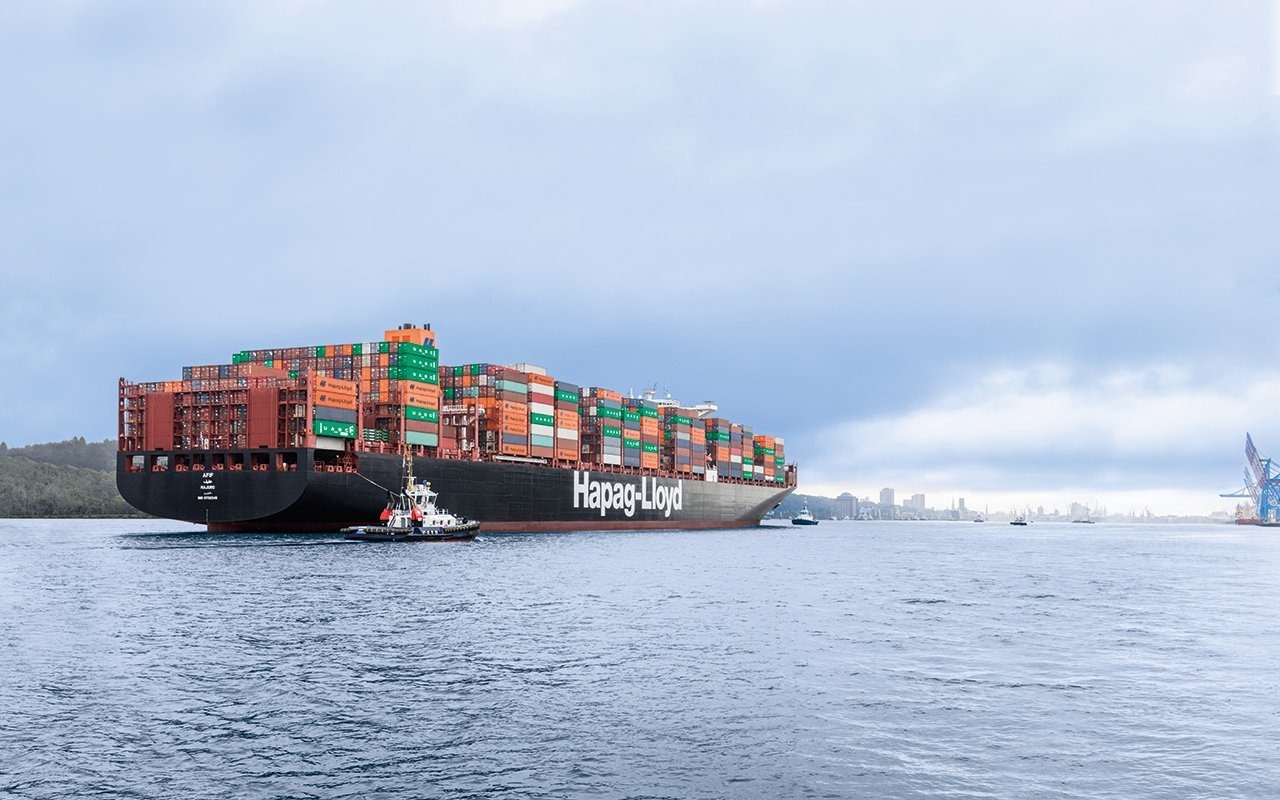
The block exemption regulation, from which shipping consortia have been benefiting, will end in April 2024, with, in its wake, some winners, some losers and some new forms of cooperation.
The European Commission announced on 10 October that the Consortia Block Exemption Regulation (CBER), from which container line shipping consortia have benefited since 2009, will not be extended. This decision, which we considered as one of a number of different hypotheses in September 2022, fell like a thunderclap in the container shipping sector. In the end, however, the end of the exemption may not change anything much, taking account of the current state of the market, particularly after the implosion of the 2M alliance.
1/ Out with consortia, in with VSAs
Following an evaluation procedure which began in August 2022, the European Commission pointed to the "low or limited effectiveness and efficiency of the CBER throughout the 2020-2023 period". It argued that the "CBER was no longer enabling smaller carriers to cooperate among each other and offer alternative services in competition with larger carriers". As a result, it said, that regulation would not be extended beyond its current expiry date, which is to say 25 April 2024.
Beware, however. This decision does not put an end to cooperation between shipping companies. Vessel sharing agreements (VSAs) are still authorised and even encouraged by Brussels when they are likely to extend the range of services available. "The expiry of the CBER does not mean that cooperation between shipping lines becomes unlawful under EU antitrust rules," the Commission said. "Instead, carriers operating to or from the EU will assess the compatibility of their co-operation agreements with EU antitrust rules."
Such legal subtleties encourage one to wonder, therefore, about these two methods of sharing ships - consortia and VSAs - among operators marketing under different brands.
- Consortia
The consortium is a way of organising which was inherited directly from the shipping conferences which existed until 2008. The system was based on what was called a "money pool", a sort of common pot to which members contributed according to the number and size of ships they brought into the consortium. Expenses were shared and revenues distributed according to each member's contribution to the overall operation.
Since 2008, the exemption regulation has allowed shipping companies to continue to cooperate on technical questions and share their costs, mainly for cargo-handling, using a "lead line" for each port or range of ports, which would negotiate on behalf of the consortium. Feport, the Federation of Port Terminal Operators, has long decried this system, which gives excessive power to shipping lines in negotiations by creating a hyper-concentration of demand.
Moreover, an operating centre set up by consortium members takes care of the technical and operational coordination of consortium ship calls and services, with all the data sharing that that involves. This data-sharing covers merchandise but not rates.
Consortium members must carry out their own marketing, which means that they can apply whatever commercial policy they want within their allocated capacity limits.
This is the system which is going to disappear, therefore, next year.
- Vessel sharing agreement
A VSA works according to different principles. Theoretically, it is a bilateral agreement negotiated between two companies, either in the form of exchanges of space aboard each other's ships, known as "slot swaps", or in the form of purchases of space aboard the vessels of another operator on the basis of a "slot used or not used" contract. Buyers of space market the service under their own names and commit to pay for all the slots they agreed to take whether they were able to sell them or not. It is common, however, for contracts to be adjusted or revised while they are being executed.
This system is set to continue after April 2024 on services in and out of Europe.
This is essential since it means that the end of the consortia does not mean that shipping companies will have to operate solely with their own resources, which is to say with the ships they own or charter and market under their own name.
2/ Those who will benefit from the end of the consortia
- The 2M alliance
From the shipping companies' point of view, MSC and Maersk are ahead of their competitors since they have already begun preparing the split-up of their alliance, as announced in January 2023. They are now virtually rid of consortium-style arrangements and are ready to go into a New Year, which promises to be tough from a cargo availability point of view.
- The forwarders
The big forwarders are also in the winning camp. Since the pandemic period, they have called constantly and insistently for the exemption system to be abolished. CLECAT, the forwarders lobby organisation in Brussels, expressed satisfaction, moreover, with the European Commission's decision.
In arguing against an extension of the exemption regulation, CLECAT pointed to the vertical integration strategy practiced by some big shipping groups, which went into direct competition with the forwarders, as well as being their suppliers. The forwarders took the view that there was a risk of unfair competition, notably from the fiscal point of view, since the shipping companies were able to take unfair advantage of tonnage tax to consolidate their results.
- The cargo-handlers
The cargo-handlers also called for the exemption regulation to be abolished or at least revised. The end of the system means that the shipping companies will have to renegotiate their cargo-handling contracts individually at each port or group of ports. This deconcentration should be favourable to cargo-handlers and particularly to independent port operators, even if there are no longer many of them left.
3/ Those who will suffer as a result of the end of the consortia
- The shipping companies
Some big shipping companies are going to have to quickly bring themselves into line with general European regulations on abuse of dominance. Certainly, this means that they will face some administrative difficulties, but they have largely adequate resources to handle them.
Things could be more complicated, however, for smaller shipping companies, who are already in minority positions within the consortia. In the short term, it will be un their interest perhaps to withdraw from the European market, particularly since these companies' operating costs will increase, since they will no longer be able to obtain the same competitive cargo-handling rates they had via group purchasing. "Worse still, some key terminals are today under the control of the big shipping groups, and it looks likely that access to the ports concerned and their hinterlands will become difficult, not to say impossible, for the smaller shipping companies." Here again, there is a risk that supply will be concentrated.
4/ What about the shippers?
Like CLECAT, the European Shippers' Council publicly welcomed the decision of the European Commission. It recalled in a communique that it fought for eight years with other concerned organisations against the exemption. As we see it, however, shippers have not emerged as victors on all fronts.
Capacity will probably be concentrated further still in the hands of the biggest operators in the shape of the leading forwarders and shipping companies. On a positive note, the new situation should incite the shipping companies to come up with strategies which will differentiate their different services, and this could have a beneficial effect on the restoration of supply chains. Shippers can hope in return for more favourable service timetables and higher ship operating speeds. Normally speaking, there should be wider variations in rate policies, with companies less prone to follow each other in this area.
On the other hand, this means that shippers will have to work much harder to make sense of the competing offers. Until now, these could be analysed fairly quickly, so little difference was there between them.
Shippers will also need to manage major differences in cargo-handling costs from one port to another.
Moreover, they should be vigilant on one point. Clearly, the new regulatory situation applies only to service to and from the European Union. If the shipping companies feel they are suffering from too many restrictions, they could simply turn without qualms to other markets where conditions are less complicated and more rewarding. Shippers could, therefore, find themselves with a reduced range of service providers on a market judged by some as unattractive. For now, the turnabout in the market has given the shippers control in the balance of power between them and transport providers. When demand recovers, however, they could be in for a rude awakening on a market on which capacity has been significantly reduced.

Jérôme de Ricqlès
Shipping expert
Our latest articles
-
Subscriber 3 min 24/02/2026Lire l'article -
Hapag-Lloyd - Zim: a shipping deal with geostrategic implications
Lire l'article -
European road freight: the spot market is stalling
Lire l'article


